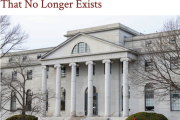Born in 1921, the year 2021 is the centenary of his rich life. And researchers, educationists, communication scholars and sundry interests in emancipation politics are up in arms, trying to make sense of the man who published what can be called the educational version of The Communist Manifesto.
That is Paulo Freire, the multi-track Brazilian who published The Pedagogy of the Oppressed, a text of how education may be structured and delivered in a manner that contributes to liberation. It has been a long way from 1968 when the book first made its appearance and two years later when the English speaking world had the version in that language.
Today, the Pedagogy is still the reference text but in a much more complicated learning world. A world of images, pictures, graphics and Executive Summary has made learning tedious for those who should be poring over complicated texts. Instead, everything must now come in over simplified power point presentations that does exactly what Freire was up against – banking the details for retrieval, pouring it in a ‘back to sender’ manner and life goes on. Students spend more time on Facebook than with books, with less and less need for conceptual knitting. Perhaps, it is not that ridiculous to say that, with education no longer as paying as thuggery, sycophancy, cultism or even banditry, who may blame them for loss of interest in conceptual knitting.
Some academics say it is even dangerous to be a teacher now. Education administrators, parents and the bulk of the students want results. ‘How many students graduated’ is more likely to interest the statisticians than how liberatory is the content of the education. In that atmosphere and with the overpowering influence of giant companies desirous of how education produces model proficient but not radical graduates, the confusion can get more interesting.
It has left experts in pedagogy in disarray. Some researchers somewhere concluded that the era of the teacher as a ‘sage on stage’ is gone forever. This is based on the claim that the attention span of the average class hardly exceeds the first 20 minutes of the lecture. Thereafter, no matter how brilliant the teacher is, his lips movement, his dress sense and non-verbal facilities are receiving more attention than what he or she might be saying. So, they argue that teaching must be made interactive as a strategy of sustaining the interest of the learner. The additional reason is that if the learner is also a participant in the process of imparting knowledge, then s/he is more likely to consume knowledge in the same manner rice is consumed. S/he is likely to relate to knowledge in more functional terms.
All these are great in speculation. In practice, it can fail disastrously. Those who thought in these terms did not anticipate that the internet would arise, placing so much data and texts and from which students can fetch huge chunk and write their names and submit as theirs. That is plagiarism, easily detectable and punishable but at grave risks of unpopularity. In recognition of that danger, some smart academics have now come up with the slogan that “when students like you, it is more likely that you are a bad teacher”. It cannot be all popular teachers that might be bending backwards to allow for unethical stuff to pass but the slogan speaks to a reality Freire must be very sad about in his grave. It is an on-going debate regarding how best knowledge may be communicated but it is certainly becoming more and more complex.
Perhaps, the remembrance might bring out more helpful insights through re-reading of The Pedagogy of the Oppressed and situating it in the present context. In this regard, the efforts of journals, seminar coordinators and intellectual spaces organising one event or the other to mark this giant are moving in the right direction.
There are no clear pictures of how it would look like from a place such as Nigeria. With a conflict ridden university system, much might not be heard from Nigeria although Nigeria seems to be where re-reading of the publication would seem most advisable. But 2021 is just off the ground. Something might still come up, even from the least expected quarters.




























